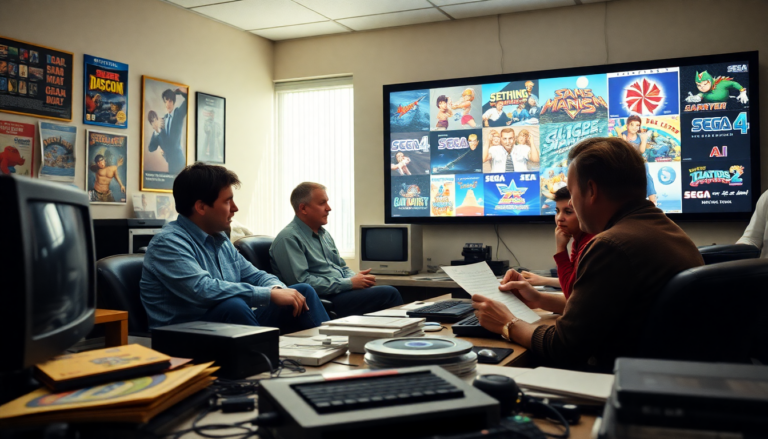Argomenti trattati
In the mid-90s, Sega was faced with a monumental challenge that would ultimately lead to its decline in the console market. The launch of Sony’s PlayStation sent shockwaves through Sega’s headquarters, and in a desperate bid to maintain relevance, the company unleashed a series of misguided strategies that, as we now know, fell woefully short. I remember reading about these events years later and thinking how different things could have been if Sega had played its cards right.
The launch of PlayStation: a game-changer
When Sony announced the PlayStation, the gaming landscape shifted dramatically. It wasn’t just a new console; it was a well-crafted marketing powerhouse, set to take on the giants of the industry. Sega, feeling the heat, was caught off guard. They had been riding high on the success of their Sega Genesis, confident that their upcoming Saturn would continue this trend. However, the PlayStation’s price—$299 compared to Saturn’s $399—made it an irresistible option for gamers looking for value.
What Sega didn’t realize was that they had underestimated Sony. The latter, a newcomer to the gaming scene, had an arsenal of experience in marketing and technology that set them apart. The buzz surrounding the PlayStation wasn’t just about its power but also its accessibility and the innovative titles that would soon grace its library.
Sega’s frantic attempts to regain ground
At E3 1995, the tension reached its peak. Tom Kalinske, then CEO of Sega of America, suggested a hardware revision to compete more directly with Sony’s offering. But in a classic case of corporate rigidity, the Japanese division refused to budge. The Saturn launched prematurely, leaving Sega scrambling to find ways to convince retailers and gamers that it was still the superior choice.
One of the most notable attempts was a rather desperate advertisement featured in Videogame Advisor, targeting retailers. This ad was filled with claims about why the Saturn was the better option compared to PlayStation. It highlighted Sega’s long-standing presence in the industry, boasting a library of titles that PlayStation allegedly wouldn’t have. Yet, as many know, these claims were often exaggerated and lacked substantial backing.
A closer look at the Saturn’s advertising tactics
The advertisement’s design was somewhat lackluster, yet it aimed to discredit Sony with bold statements. Phrases like “Sony and arcade never appear in the same sentence” and “The Sega Saturn is more fun” attempted to position Sega as the more established and trustworthy choice. Ironically, they even poked fun at Sony’s background in electronics, stating, “Sony makes radios and alarm clocks; you can buy a decent TV for your Sega Saturn.”
But the real kicker was the pricing strategy. The advertisement boasted, “Sega Saturn includes the hit game Virtua Fighter, along with special promotions for the fall that add even more value to the console.” This was an attempt to shift focus from the fact that Sony was offering a console at a significantly lower price point without bundled games. It was as if Sega believed that nostalgia and brand loyalty alone could carry them through this crisis.
The aftermath and lessons learned
As the years passed, it became evident that Sega’s efforts were in vain. The Saturn, despite its technical merits and a few standout titles, couldn’t compete with the PlayStation’s momentum. The console wars of the 90s taught us many lessons—chief among them that innovation and adaptability are crucial in a rapidly evolving market.
Reflecting back, one can’t help but wonder how different the landscape might have been had Sega embraced a more flexible approach. I recall the excitement of waiting for new releases, and how the anticipation often overshadowed the actual experience. In my view, Sega’s narrative serves as a cautionary tale for any tech company: never underestimate your competition, and always be willing to adapt.
Final thoughts
Ultimately, Sega’s story is one of ambition, miscalculation, and lost opportunities. They had a loyal fanbase and a wealth of experience, yet their failure to recognize the changing tides of the gaming world led to their downfall. The console wars weren’t just about hardware; they were about vision, strategy, and the ability to connect with gamers on a personal level. As we continue to witness the evolution of gaming, one thing remains clear: the past shapes the future, and the lessons learned from Sega’s journey are invaluable.

